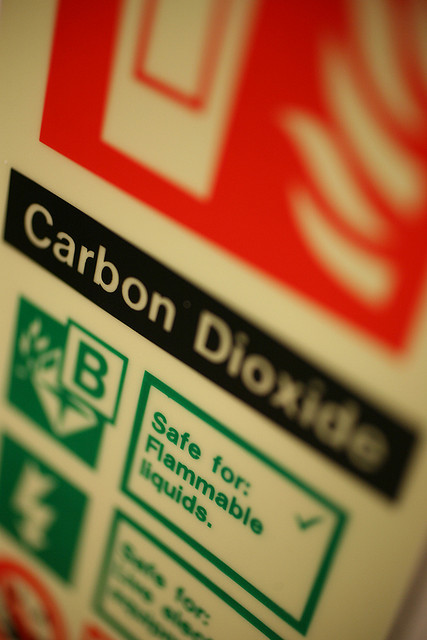In December we saw in this space that a US Environmental Protection Agency inventory showed solid reductions in greenhouse gas (GHG) emissions in recent years. Now EPA has issued its annual Climate Protection Partnerships report, which contains more good news on the emissions front.
Audit, Compliance and Risk Blog
EPA Programs Showing Solid Reduction in Greenhouse Gas Emissions
Posted by Viola Funk on Mon, Mar 03, 2014
Tags: Audit Standards, Health & Safety, EPA, Greenhouse Gas, ghg, Oil & Gas, climate change
Environmental Compliance: EPA Adopts Hazardous Waste e-Manifests
Posted by Jon Elliott on Wed, Feb 26, 2014
The Resource Conservation and Recovery Act (RCRA) requires you to document all shipments of regulated hazardous wastes. Domestic transportation is documented using Uniform Hazardous Waste Manifests, which are shipping documents prescribed by the US Environmental Protection Agency (EPA) which revises Manifest forms occasionally—including major changes back in 2006. Now EPA has acted again, to create an electronic manifest (“e-Manifest”) option that will take force once EPA finishes the web-page data system required to receive and manage electronic filings.
Tags: Health & Safety, Environmental risks, Environmental, EPA, Hazcom, RCRA
The year 2013 has been another relatively quiet one for most environmental health and safety (EH&S) compliance personnel. Continuing differences in Congress have stymied would-be initiatives on both sides of the partisan aisles, so there were no meaningful legislative changes.
Tags: Health & Safety, OSHA, Environmental risks, Environmental, EHS, EPA, Hazcom, Transportation
With legislation action on climate change deadlocked by partisan divisions in Congress, the Obama Administration is pursuing a growing set of administrative and regulatory initiatives under existing authority. Many of these involve actions by the Environmental Protection Agency (EPA) applying Clean Air Act (CAA) authority, but some involve other EPA authority and/or other agencies.
Tags: Health & Safety, Environmental risks, Environmental, EPA, Hazcom
Environmental Compliance: EPA Revises Volatile Organic Compounds
Posted by STP Editorial Team on Wed, Jan 15, 2014
Effective November 21, 2013, EPA exempted 2,3,3,3-tetrafluoropropene (also known as HFO–1234yf) from the regulatory definition of Volatile Organic Compounds (VOCs). This compound will not be counted as a VOC for entities using or producing HFO–1234yf in a product other than an aerosol coating, limiting the VOC emissions from a facility, or otherwise controlling the use of VOC for purposes related to attaining the ozone NAAQS. Emissions of this compound will not be considered in determining whether a proposed new or modified source triggers the applicability of Prevention of Significant Deterioration (PSD) requirements, in areas where the PSD program is implemented by the EPA or a delegated state, local, or tribal agency. This action may also affect whether HFO–1234yf is considered a VOC for state regulatory purposes, depending on whether the state relies on the EPA’s regulatory definition of VOCs.
Tags: Health & Safety, Environmental risks, Environmental, EPA, Greenhouse Gas, ghg, Hazcom, Oil & Gas
Common Violations at Dealerships, Service and Repair Facilities
Posted by STP Editorial Team on Mon, Dec 09, 2013
Based on a limited survey of the Certified Unified Program Agencies (CUPAs) of the California Environmental Protection Agency (Cal/EPA), the Department of Toxic Substances Control (DTSC) found the following top eight violations:
Tags: Corporate Governance, Health & Safety, Environmental risks, Environmental, EPA
Environmental Compliance: EPA Tracks Reductions in GHG Emissions
Posted by Viola Funk on Fri, Dec 06, 2013
Do you ever wonder whether auditing of greenhouse gas emissions is working? It may be a bit early in the game to say for sure, given that GHG emission tracking standards are a recent phenomenon. But an annual report compiled by the U.S. Environmental Protection Agency (EPA) may be a good gauge of trends in emission reductions, judging by its latest installment.
Tags: Corporate Governance, Business & Legal, Health & Safety, Environmental risks, Environmental, EHS, EPA, Greenhouse Gas, ghg
Regulatory Compliance: Do These Penalties Seem Larger To You?
Posted by Jon Elliott on Mon, Nov 25, 2013
Most laws include penalty provisions, for assessment against people who fail to comply with legal responsibilities created by the laws. Back in 1996, Congress noticed that inflation was steadily reducing the deterrent effects of the penalties set forth in statutes, and that Congress itself was not reliably adjusting the maximum penalties assessable by enforcement personnel. Rather than burden itself with a responsibility to amend laws to keep up with inflation, Congress enacted the passed Debt Collection Improvement Act (DCIA) of 1996 to assign that responsibility to administrative agencies. DCIA requires most federal agencies to issue rules at least every 4 years, adjusting most penalties for inflation. In the ensuing 17 years, most agencies have made these periodic adjustments—larger in times of high inflation and lower in times of low inflation.
Tags: Corporate Governance, Business & Legal, Environmental risks, Environmental, EPA
On October 28, British Columbia, California, Oregon and Washington signed the Pacific Coast Action Plan on Climate and Energy, committing themselves to align efforts to control greenhouse gas (GHG) reductions to combat climate change, and to promote clean energy. The Action Plan is adopted under the aegis of the Pacific Coast Collaborative, which encompasses these four jurisdictions plus Alaska.
Tags: California Legislation, Environmental risks, Environmental, EPA, Greenhouse Gas, ghg, climate change, Canadian
It’s common knowledge now that lead is a systemic poison. Overexposure to it can damage our blood-forming, nervous, urinary and reproductive systems. In the past, lead was commonly added to industrial paints because of its characteristic corrosion resistance and color enhancement. Lead Poisoning Prevention Week takes place from October 20–26. Sponsored by the US Environmental Protection Agency (EPA), this year’s event focuses on protecting children from exposure to lead. EPA and partner agencies such as HUD are helping raise awareness among parents of ways to combat lead poisoning, from monitoring children’s consumption of certain types of imported candy to screening those most liable to be exposed to lead in the home.
Tags: Business & Legal, California Legislation, Environmental risks, Environmental, EPA










